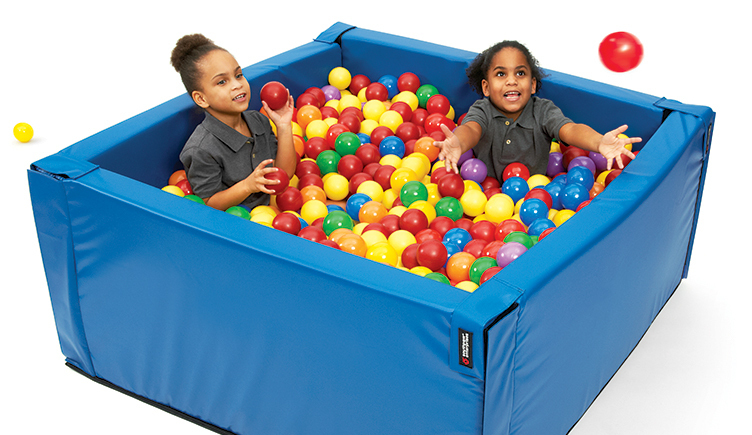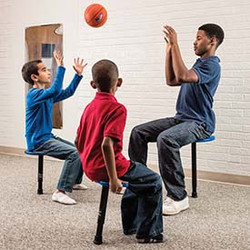Occupational therapy focuses on the “occupations” of an individual. We are trained to help assess what these are for our clients in order to help them grow stronger and more independent. Many times we find that it is easier to create purposeful and meaningful activities for treatment plans of our younger students and clients because so much of their purpose focuses on “play.” However, more and more we are finding that our caseloads are growing in numbers of clients that are falling in the teenage realm. These children are finding their way to us due to a variety of concerns, including the behaviors and needs that are associated with the Autism Spectrum as well as stress and anxiety. They may also demonstrate poor core stability and coordination skills, concerns with handwriting and keyboarding skills, and social/emotional issues as a result of societal factors such as technology and lack of physical activity.
When working with these children, oftentimes we find we are in the middle of treating a child and an adult, and treatment planning is just that. In today’s society, the stressors that these children carry from an expectation of “perfection,” as well as stressors that are wrapped up in all the concerns that come with technology and social media, make it easy to lose focus on them being children, and we need to help bring that focus back. Typically, by the time children hit their pre-teen years, they pretty much have figured out their activity likes and dislikes. If children do not enjoy playing sports, they will seldom want to pick up a new one to try, and if they have never been into drawing or playing an instrument, now really isn’t the time they typically look to pursue these tasks. In addition, they tend to be resistant to try anything new, as well as participate in therapy. We may find building confidence, and pushing them a little, is exactly what they need to overcome some of their obstacles. Therefore, things that we need to focus on to have a successful therapeutic experience include:
- Building Rapport—This is important for all children that we treat, but especially with teenagers. For those with social-emotional concerns, we may find that they lack social and conversation skills, as well as lack confidence because they do not have a large social circle. In addition, if you make a connection, it will be a great way for them to have an outlet. Knowing some of the trends, as well as their likes and interests, will be helpful to achieve this, along with having realistic expectations. Using your therapeutic use of self is always a great starting point.
- Finding Tasks with a Purpose—Trying to relate to children in this stage of life can be difficult. Oftentimes they have very few interests or do not even want to be bothered. When it comes to therapeutic activities, it is important to find those things that are both of interest and offer some bit of challenge. As a therapist, working with those who have sensory processing concerns, this can be difficult if you are looking to provide movement and input. Thinking outside the box, such as bringing age-appropriate tasks and sports into play, could help, such as hiking, Nerf gun battles, swimming and sports. For those who have strong interests in video games and electronics, think about changing up their positioning as they play.
- Addressing Stressors—From school to sports to friends, there are so many stressors facing our young adults. First and foremost, you have to be source of validation, but then help them identify the stressors and work to come up with coping mechanisms. Having open communication about the real issues and stressors that face these children is important.
- Keeping It Functional and Purposeful—After addressing the areas above, take time to think about what the individual really needs. Focusing on things such as independent learning, job searching, self-care, social interactions and participating in community activities, even as simple as completing a transaction at a store, are all helpful activities for teens.
Helping to find a connection and functional tasks that build confidence and interaction skills will have parents thanking you as well. So, do not lose sight of these very important clients…find fun and purpose!



